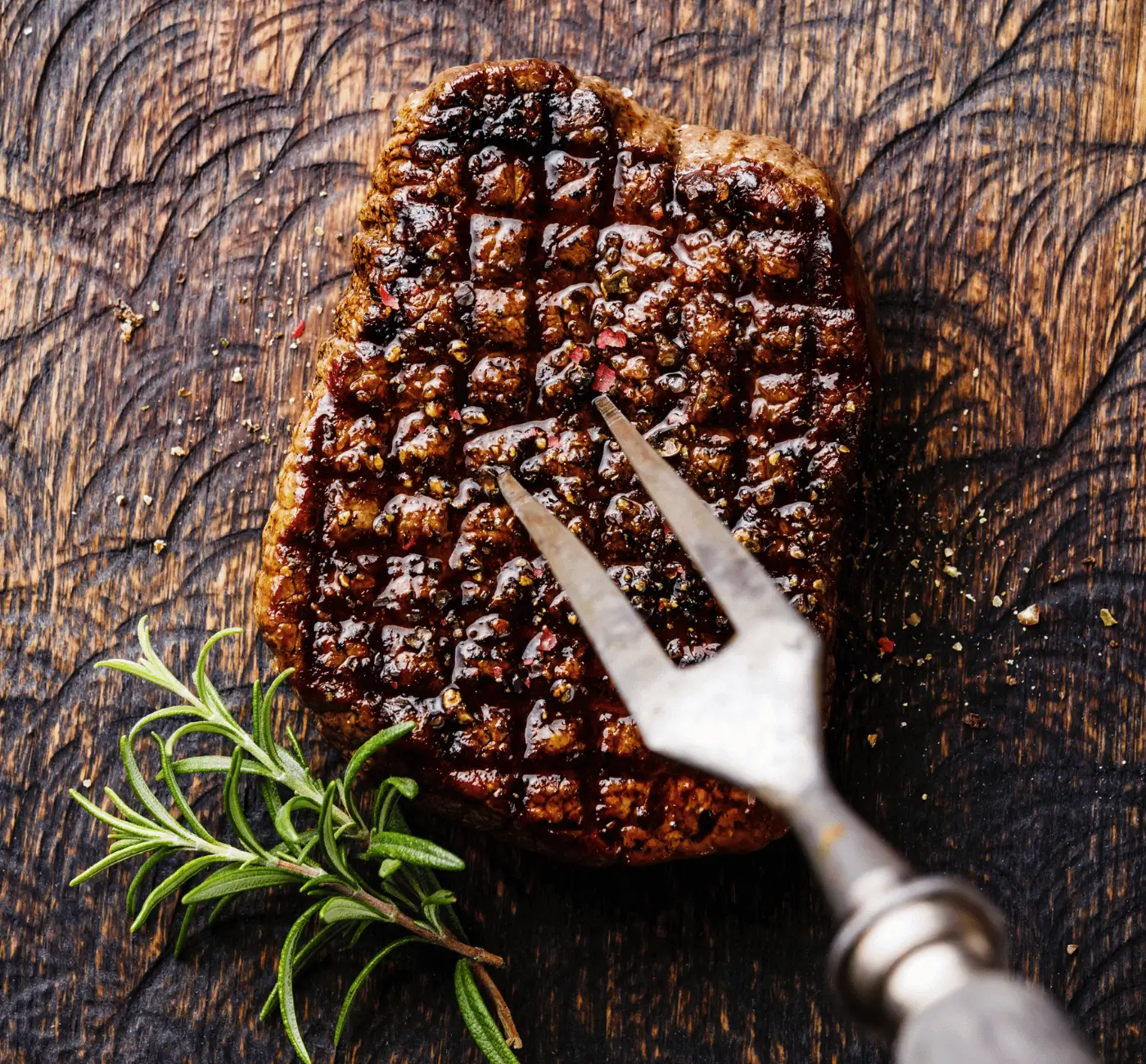.png)
The rise of veganism is one of the most significant dietary trends of our time. Driven by a compelling mix of ethical concerns for animals, environmental sustainability, and the widely perceived health benefits, millions of people are choosing to eliminate all animal products from their plates. The popular narrative often frames this shift as a clean, simple, and universally positive step toward better health.
But what if the biological reality is more complex? Beyond the headlines and health blogs, a wealth of scientific data reveals a series of significant and often underestimated physiological challenges the human body faces on a strict plant-only diet. What are the unspoken risks that get lost in the enthusiasm for plant-based eating?
This article will explore five of the most surprising and impactful scientific findings about the challenges a strict vegan diet presents to human physiology. Drawing from a critical review of nutritional data, we will examine the biological truths your body understands, even if they are not part of the popular conversation.
Among all the potential nutrient issues associated with a vegan diet, Vitamin B12 stands in a class of its own. It is a critical nutrient, essential for nerve function, DNA synthesis, and the formation of red blood cells. The unavoidable truth is that Vitamin B12 is not naturally present in any reliable or usable form in plant foods. It is synthesized by microorganisms, and for humans, the only natural dietary sources are animal products.
This biological fact makes B12 deficiency an inevitability, not just a risk, for anyone on a long-term, strict vegan diet who does not use supplements or fortified foods. This is not a theoretical problem; one study found that approximately half of the 232 vegan participants studied had a clinical B12 deficiency. While the body can store B12 for years, the consequences of a deficiency are severe and can be irreversible, including megaloblastic anemia and permanent neurological damage. Symptoms, which can take five to ten years to manifest, range from fatigue and memory problems to tingling in the hands and feet and serious balance issues.
The evidence is so overwhelming that major health organizations have issued clear mandates. As the German Nutrition Society (DGE) states unequivocally:
...taking a vitamin B12 supplement is a "must" for anyone following a vegan diet.
This raises a fundamental question: what does it mean for a diet to be considered complete or natural for humans if it requires mandatory, lifelong supplementation to prevent severe physiological harm?
A common mistake when evaluating nutrition is assuming that a gram of a nutrient is the same regardless of its source. The reality is that the mere presence of a nutrient in a food doesn't guarantee your body can absorb or use it effectively. This is known as "bioavailability," and the difference between plant and animal sources creates a significant "bioavailability gap."
Here are two key examples:
This gap is critical because it shows that simply matching nutrient numbers on a food label is not enough. The biochemical form of a nutrient and its source ultimately dictate its true value to your body.
Plants have evolved complex chemical defense systems to protect themselves from being eaten. These compounds, often called "anti-nutrients," can interfere with human digestion and nutrient absorption. While present in any diet that includes plants, their intake becomes highly concentrated in a diet composed exclusively of plants, creating a chronic headwind against achieving nutritional sufficiency.
Two of the most impactful anti-nutrients include:
This creates a nutritional paradox: in order to get more of the minerals they need, vegans must often consume more of the very foods that contain compounds designed to block the absorption of those same minerals.
You may have heard the popular claim that, calorie-for-calorie, broccoli contains more protein than steak. This statement is a classic example of a misleading statistical comparison that ignores the realities of food volume, satiety, and protein quality. It's a talking point that falls apart under practical, real-world scrutiny.
Here is the direct, gram-for-gram reality check:
To get the same amount of protein as a single 3.5-ounce steak, you would need to eat over 1.2 kilograms (or about 2.6 pounds) of broccoli. Not only is consuming such a massive volume of food impractical, but it also highlights a deeper biochemical truth. The quality of a protein is determined by its amino acid profile. A 100g serving of steak contains 1,747 mg of leucine, a key amino acid that triggers muscle protein synthesis. That same 100g of broccoli contains only 129 mg. On every practical measure—from protein per serving to the specific building blocks your body needs—the comparison is not just flawed, it's biologically meaningless.
If a standard vegan diet presents a series of physiological hurdles, a raw vegan diet escalates them into significant clinical risks. By rejecting cooking—a critical human process for detoxifying plants and making their nutrients available—raw veganism maximizes exposure to a plant's chemical defenses and severely compromises the body's ability to get nutrition. Cooking isn't just about taste; it is a vital process that deactivates harmful lectins, neutralizes toxins like cyanogenic glycosides (which can release hydrogen cyanide), and reduces the mineral-blocking effects of phytates and oxalates.
The documented health outcomes for those on long-term raw vegan diets are severe and serve as a stark warning. Clinical studies have revealed a pattern of serious issues:
These outcomes demonstrate a fundamental mismatch between this dietary strategy and human biology. Humans evolved with fire and food processing, which allowed us to unlock nutrients and support a larger brain. A raw vegan diet is a rejection of these essential adaptations.
A dispassionate look at the evidence reveals that a strict, un-supplemented vegan diet presents a cascade of significant physiological challenges. From guaranteed deficiencies like B12 and a profound gap in nutrient bioavailability to a high load of anti-nutrients that actively block absorption, these issues form a pattern of systemic inadequacy. The constant need for supplements and fortification is not a minor adjustment, but a clear acknowledgment from health authorities of the diet's inherent incompleteness for human biology.
This information is not intended to be a prescriptive recommendation, but rather to illuminate a side of the story that is often overlooked. It leaves us with a critical question to consider as we navigate our modern food landscape: in the quest for an optimal diet, how much should we prioritize our evolutionary biology over modern dietary ideologies?
To learn more, register for our course here: Memberships

.png)
.png)
We’re a global community of seekers, healers, and doers committed to reclaiming health on our own terms. When you join the Kiltz Mighty Tribe (KMT), you’ll gain access to education, support, and collective wisdom.


